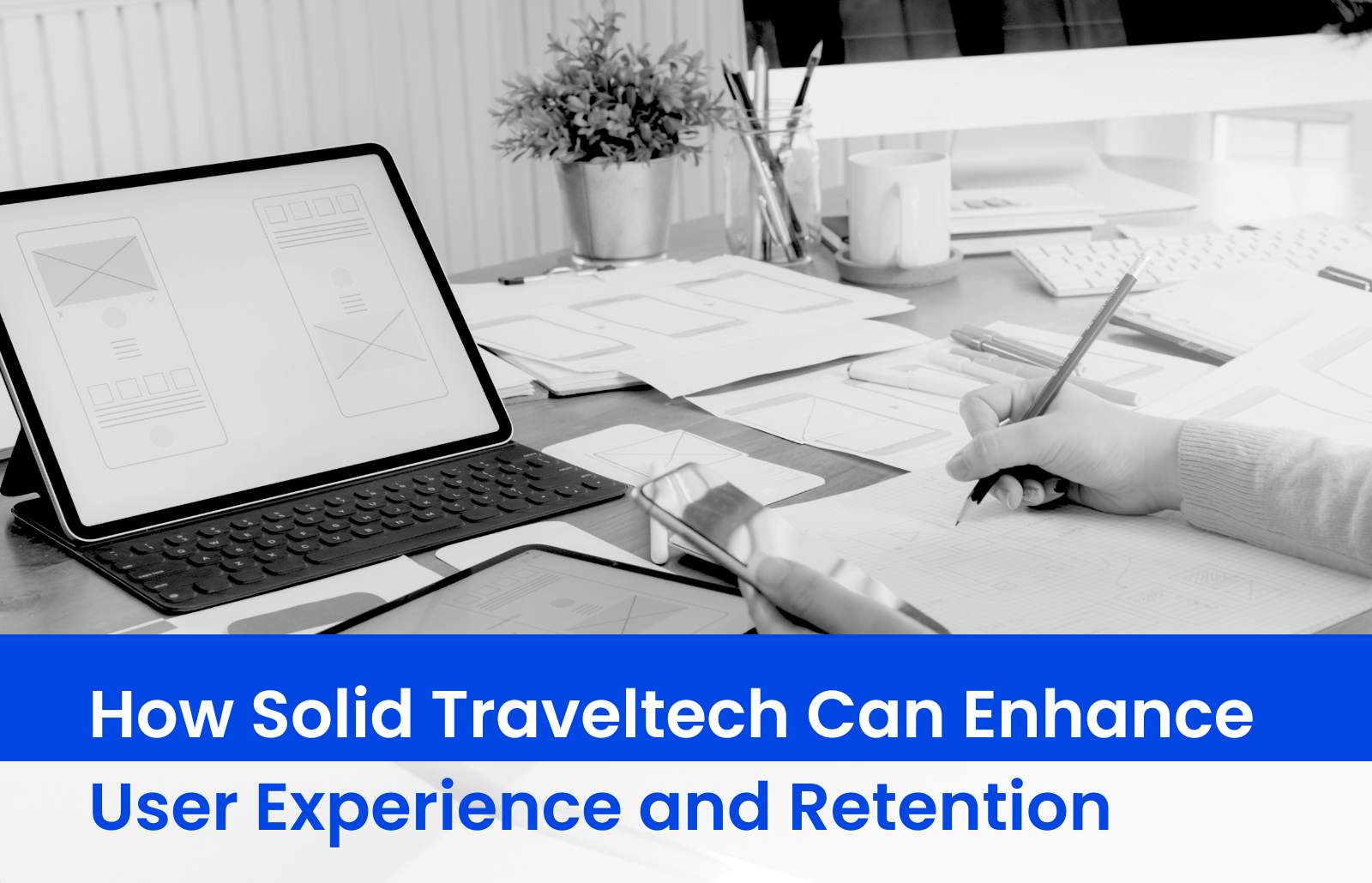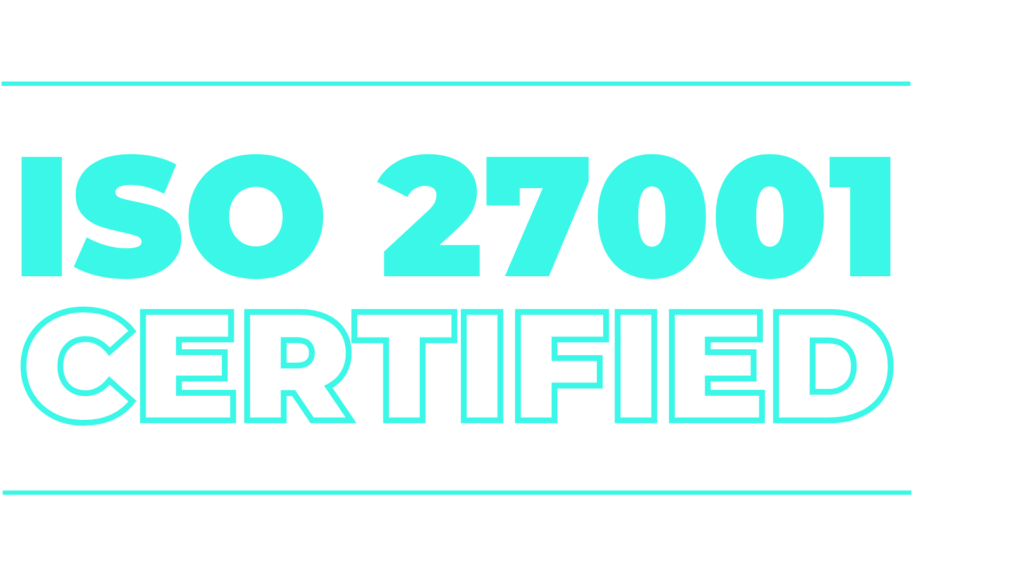In 2023, the worldwide Travel Technology market boasted a valuation of USD 8.4 billion, poised for further growth at a robust CAGR of 7.56% through the forecast period. By 2027, projections indicate an impressive escalation, with the market anticipated to soar to USD 13 billion.
In today’s competitive travel landscape, providing a seamless and personalised user experience (UX) is crucial for attracting and retaining customers. Positive UX fosters brand loyalty, encourages repeat bookings, and ultimately drives revenue growth. Conversely, negative experiences can lead to customer churn, negative reviews, and lost revenue. In an era where travellers seek seamless and memorable experiences, prioritising UX and retention has become imperative for sustainable growth and profitability in the travel sector. Let’s delve deep into it!
Understanding the Role of Traveltech
Traveltech, short for travel technology, refers to the innovative use of technology within the travel industry. It encompasses various tools and platforms, including online booking systems, mobile apps, travel management software, virtual reality experiences, and artificial intelligence-powered chatbots.
The symbiotic relationship between technology and the tourism sector traces back decades. From the pioneering days of the 1970s when airlines first utilised computers to streamline reservations, to the interconnected systems of the 1980s linking service providers and travel agencies for real-time access to rates and availability, the evolution has been profound.
The advent of the Internet in the 1990s empowered users to browse prices and book accommodations, revolutionising the industry autonomously. Fast forward to the 21st century, where the convergence of mobile technology, virtual reality, blockchain, and artificial intelligence has propelled the tourism sector into a new era of innovation and unparalleled connectivity.
Evolution of Traveltech:
-
Early Online Booking Platforms
The advent of online booking platforms such as Expedia and Travelocity in the late 1990s revolutionised the travel industry by offering convenient access to flights, hotels, and other accommodations. These platforms allowed travellers to compare prices and make reservations from the comfort of their homes, marking a significant shift from traditional brick-and-mortar travel agencies.
-
Shift towards Niche Solutions
As the travel industry continued to evolve, there was a growing demand for specialised platforms catering to specific niches within the market. Platforms focusing on adventure travel, eco-tourism, and peer-to-peer accommodations emerged, providing travellers with more tailored and unique experiences. These niche solutions offered curated experiences that appealed to travellers seeking authentic and off-the-beaten-path adventures.
-
Rise of Immersive Technologies
With the advancements in technology, especially in artificial intelligence (AI), virtual reality (VR), and augmented reality (AR), there has been a significant shift towards immersive travel experiences. AI-driven personalised recommendations, VR-enabled virtual tours of destinations, and AR overlays providing real-time information have transformed the way travellers plan and experience their trips. These immersive technologies have added a new dimension to travel, allowing travellers to explore destinations virtually and make more informed decisions.
Key Components of Traveltech:
1- Booking and Reservation Systems
These systems simplify the booking process by providing users with easy access to flights, hotels, activities, and transportation options. They offer real-time availability and pricing information, allowing travellers to make informed decisions and secure bookings quickly and efficiently.
2- Travel Management Tools
Travel management tools assist travellers in planning and managing their itineraries, tracking expenses, and staying informed about their travel arrangements. These tools streamline the travel planning process, making it easier for travellers to organise their trips and stay organised throughout their journey.
3- Marketing and Distribution Platforms
Marketing and distribution platforms help travel companies reach potential customers through targeted advertising and online marketplaces. These platforms leverage data analytics and targeting algorithms to identify and engage with potential customers, driving traffic and conversions for travel businesses.
4- Customer Service Solutions
Customer service solutions, such as AI-powered chatbots and personalised support systems, enhance the customer experience by providing timely assistance and resolving inquiries efficiently. These solutions offer 24/7 support, allowing travellers to get help whenever they need it, and personalised assistance, ensuring that their needs are met throughout their journey.
5- Payment Processing Systems
Payment processing systems offer secure and convenient online payment options for travel bookings, ensuring that transactions are processed quickly and securely. These systems support various payment methods and currencies, making it easy for travellers to pay for their bookings in a way that is convenient for them.
Current Trends and Innovations
1- Hyper-personalisation
Hyper-personalisation involves leveraging AI-driven recommendations, dynamic pricing, and tailored travel experiences based on individual preferences. By analysing user data and behaviour, travel companies can offer personalised recommendations and experiences that cater to the unique needs and interests of each traveller.
2- Mobile-first Approach
With the increasing use of smartphones and mobile devices, travel companies are adopting a mobile-first approach to cater to the needs of mobile users. User-friendly mobile apps offer booking, communication, and in-destination support, allowing travellers to access information and make bookings on the go.
3- Blockchain Technology
Blockchain technology is being used to enhance data security, transparency, and trust in travel bookings. By storing transaction data on a decentralised ledger, blockchain technology ensures that travel bookings are secure and tamper-proof, reducing the risk of fraud and enhancing trust between travellers and travel companies.
4- Sustainable Travel Solutions
There is a growing emphasis on promoting eco-friendly travel options and carbon-offsetting initiatives to reduce the environmental impact of travel. Sustainable travel solutions aim to minimise the carbon footprint of travel by offering eco-friendly transportation options, supporting local communities, and promoting responsible tourism practices.
5- Voice-activated Technology
Voice-activated technology, such as smart speakers and assistants, is being used to enable hands-free travel planning and booking. By integrating voice-activated technology into their platforms, travel companies can offer a more convenient and accessible booking experience for travellers.
The Impact of User Experience on the Travel Industry
Importance of Seamless User Experience:
a) Drive Customer Satisfaction
A seamless user experience is essential for driving customer satisfaction, loyalty, and repeat bookings. When travellers encounter frictionless booking processes, intuitive interfaces, and personalised recommendations, they are more likely to have a positive experience and return to booking with the same company in the future.
b) Enhance Brand Reputation
Positive user experiences contribute to a favourable brand reputation and can lead to positive online reviews and recommendations. Travel companies that prioritise user experience are more likely to receive positive feedback from customers, which can help attract new customers and retain existing ones.
c) Increase Profitability
A seamless user experience can lead to increased profitability by reducing customer churn and acquisition costs. When travellers have a positive experience, they are more likely to book with the same company again in the future, reducing the need for expensive marketing campaigns to attract new customers.
d) Competitive Differentiation
In a crowded and competitive market, a seamless user experience can help travel companies differentiate themselves from their competitors. By offering a superior user experience, travel companies can stand out from the competition and attract customers who value convenience, efficiency, and personalised service.
Challenges Faced by Travel Companies
-
Fragmentation of Travel Information
Travel information is often fragmented across multiple platforms, making it difficult for travellers to find and compare options. Fragmented information can lead to confusion and frustration for travellers, resulting in a poor user experience and lost bookings for travel companies.
-
Complex Booking Processes
Booking processes can be complex and confusing, with hidden fees and convoluted terms and conditions. Complex booking processes can deter travellers from completing their bookings and lead to abandoned carts and lost revenue for travel companies.
-
Lack of Personalisation
Many travel companies struggle to offer personalised recommendations and experiences to their customers. Without personalised recommendations, travellers may feel overwhelmed by the sheer volume of options available to them and may struggle to find the best fit for their needs and preferences.
-
Limited Accessibility
Accessibility is a significant challenge for travellers with disabilities, who often encounter barriers when trying to book and plan their trips. Travel companies must work to make their platforms and services more accessible to travellers with diverse needs to ensure that everyone can enjoy a seamless and inclusive travel experience.
-
Data Privacy Concerns
Data privacy concerns are a growing challenge for travel companies as travellers become increasingly concerned about the security and privacy of their personal information. Travel companies must implement robust data security protocols to protect their customers’ data and ensure that it is handled responsibly and ethically.
Strategies for Overcoming Challenges
1- Collaborate with Industry Stakeholders
Foster collaboration with industry stakeholders and policymakers to develop clear and consistent data privacy regulations. By working together with regulatory bodies, travel companies can ensure that privacy laws are well-defined and aligned with industry standards, creating a more transparent and predictable regulatory environment.
2- Prioritise Transparency and Ethical Data Practice
Transparency and ethical data practices are crucial for building trust with users. Travel companies should prioritise transparency in their data collection and usage practices, providing clear information about how user data is collected, stored, and utilised. By adopting ethical data practices, companies can demonstrate their commitment to protecting user privacy and fostering trust among their customer base.
3- Invest in Ongoing Research and Development
To stay ahead of evolving technologies and market trends, travel companies should invest in ongoing research and development. By continuously innovating and exploring new technologies, companies can position themselves as leaders in the industry and adapt to changing customer preferences and behaviours.
4- Partner with Tech Experts and Startups
Collaborating with tech experts and startups can provide travel companies with access to emerging technologies and innovative solutions. By partnering with startups and tech experts, companies can leverage their expertise and resources to develop and implement cutting-edge solutions that address key industry challenges. Additionally, partnering with startups can help companies stay agile and responsive to changing market dynamics, enabling them to adapt to new technologies and market trends quickly.
Benefits of Traveltech: Exploring a Multifaceted Industry in Tourism
Discovering Traveltech means realising it’s a big industry with lots of different technologies and tools. From common ones like Google Maps to cool virtual reality tours, there’s a lot to explore. Using these technologies in tourism brings real benefits.
- Enhanced Supply Chain Management: Traveltech enables more efficient resource and service management throughout the supply chain, fostering streamlined operations and resource optimisation.
- Dynamic Pricing Optimisation: Through real-time adjustments in pricing and service availability, Traveltech facilitates dynamic pricing strategies, ensuring optimal pricing structures and maximising revenue potential.
- Improved Customer Relationships: Leveraging technology enhances communication and engagement with customers, fostering stronger relationships, increasing retention rates, and cultivating customer loyalty.
- Expanded Visibility and Audience Reach: Adoption of Traveltech enhances visibility across various platforms, expanding the audience reach and driving greater engagement with target demographics.
- Personalised Experiences: Utilising data-driven insights, Traveltech enables personalised recommendations tailored to individual preferences and needs, enhancing the overall travel experience and satisfaction levels.
Opportunities for Improvement
- Streamlined Booking Processes: By simplifying booking processes and providing clear and concise information, travel companies can reduce friction and make it easier for travellers to complete their bookings quickly and efficiently.
- Personalised Recommendations: By leveraging AI and machine learning algorithms, travel companies can offer personalised recommendations tailored to each traveller’s preferences and interests. Personalised recommendations can help travellers find the perfect destination, accommodation, or activity for their trip, leading to higher satisfaction and increased bookings.
- AI Chatbot Integration: By integrating AI-powered chatbots into their platforms, travel companies can provide round-the-clock customer support for personalised assistance and guidance. AI chatbots can handle common inquiries, provide real-time information, and assist with booking processes, enhancing the overall user experience and reducing the burden on customer support teams.
- Accessible Travel Options: To address accessibility concerns, travel companies can provide accessible travel options and information for travellers with disabilities. This includes offering wheelchair-accessible accommodations, transportation, and attractions, as well as providing detailed accessibility information on their websites and booking platforms.
- Enhanced Data Security: To address data privacy concerns, travel companies must prioritise data security and implement robust protocols to protect their customers’ data. This includes encrypting sensitive information, implementing multi-factor authentication, and regularly auditing and monitoring their systems for potential vulnerabilities.
Leveraging Solid Traveltech for Enhanced User Experience
Personalisation and Customisation:
a) AI-powered Tools
By leveraging AI and machine learning algorithms, travel companies can offer personalised recommendations for destinations, activities, and accommodations based on travellers’ preferences and past travel history. These personalised recommendations can help travellers discover new destinations and experiences that align with their interests and preferences.
b) Dynamic Packages and Itineraries
Travel companies can offer dynamic packages and itineraries that are tailored to each traveller’s interests, budget, and travel preferences. By allowing travellers to customise their travel experiences, companies can create more personalised and memorable trips that cater to the unique needs of each traveller.
c) Opt-in Updates
Travel companies can offer opt-in options for travellers to receive relevant travel updates and recommendations based on their preferences. By allowing travellers to customise their communication preferences, companies can ensure that they receive timely and relevant information that enhances their travel experience.
Seamless Booking Processes
a) Mobile-friendly Platforms
Travel companies can offer mobile-friendly booking platforms with a simple and intuitive interface that makes it easy for travellers to book their trips on the go. Mobile-friendly platforms ensure that travellers can access and book their trips from any device, enhancing convenience and accessibility.
b) One-click Booking Options
Travel companies can offer one-click booking options and integrate with various payment methods to streamline the booking process and make it faster and more convenient for travellers to complete their bookings. One-click booking options reduce friction and make it easier for travellers to book their trips quickly and efficiently.
c) Real-time Availability and Transparent Pricing
Travel companies can provide real-time availability and transparent pricing information to travellers, allowing them to see the latest availability and pricing for flights, hotels, and other accommodations. Transparent pricing ensures that travellers have all the information they need to make informed decisions and avoid surprises during the booking process.
d) Flexible Booking Modifications and Cancellation Policies
Travel companies can offer flexible booking modification and cancellation policies to accommodate travellers’ changing plans and preferences. Flexible policies give travellers peace of mind knowing that they can make changes to their bookings if needed, without incurring additional fees or penalties.
Integration of Emerging Technologies (AI, AR, VR):
- AI Chatbots: By integrating AI chatbots into their platforms, travel companies can offer personalised assistance and support to travellers 24/7. AI chatbots can handle common inquiries, provide real-time information, and assist with booking processes, enhancing the overall user experience and reducing the burden on customer support teams.
- VR Experiences: Travel companies can leverage VR technology to offer virtual tours of destinations, hotels, and attractions, allowing travellers to explore and experience their chosen destinations in a more immersive and interactive way. VR experiences provide travellers with a preview of what to expect during their trip, helping them make more informed decisions and enhancing their overall travel experience.
- AR Overlays: By integrating AR overlays into their platforms, travel companies can provide travellers with real-time information and navigation assistance during their trips. AR overlays can overlay information such as points of interest, directions, and reviews onto the traveller’s view of their surroundings, helping them navigate and explore their destination more easily.
The Travel Industry’s Retention Crisis
Churn Rates on the Rise: Quantifying the Problem
The travel industry needs to improve with high customer churn rates, with studies suggesting an average of 72% of travellers book with a different provider for their next trip. This highlights a concerning trend of customer dissatisfaction and lost business opportunities.
Lost Revenue and Missed Opportunities: The Economic Impact
High churn rates translate to significant financial losses for travel companies. Estimates suggest that the industry loses billions annually due to customer churn. Retaining existing customers is significantly cheaper than acquiring new ones, making it an economically sound strategy to prioritise UX and retention efforts.
Beyond Profits: Impact on Brand Reputation and Customer Trust
Negative customer experiences can damage a brand’s reputation and erode customer trust. In the age of social media, dissatisfied travellers can easily share their negative experiences online, impacting the brand’s image and deterring potential customers.
Solid Traveltech: Building Foundations for Success with Detailed Content
User-Centric Design: Putting Travellers at the Heart of Everything
Traveltech’s foundation lies in understanding and serving the needs of travellers. This means:
- Empathy-driven Design: Conducting user research, understanding pain points, and designing solutions that address them.
- Accessibility for All: Ensuring interfaces are inclusive and cater to diverse abilities and needs.
- Personalisation: Going beyond demographics, understanding individual preferences, and tailoring experiences accordingly.
- Continuous User Feedback: actively involving users in the design process and iterating based on their insights.
Seamless Technology Integration: Frictionless Journeys from Search to Booking
A solid travel tech platform eliminates friction at every stage:
- API Integration: Connects various services (flights, hotels, activities) into a unified platform for seamless browsing and booking.
- Omnichannel Accessibility: Ensures a consistent experience across desktops, mobiles, and other devices.
- Real-time Data & Updates: Provides accurate information on availability, prices, and changes for informed decisions.
- Offline Functionality: Allows users to access essential information and booking options even without connectivity.
How Solid Traveltech Can Be the Key to Success
In an increasingly competitive landscape, solid Traveltech solutions emerge as vital tools for addressing the industry’s retention challenges while elevating user experiences across multiple touchpoints:
- Personalised Recommendations: Harness the power of AI and machine learning algorithms to deliver tailored suggestions for destinations, activities, and accommodations, aligning with individual preferences and interests.
- Seamless Booking and Trip Management: Provide intuitive and user-friendly platforms for streamlined booking processes, itinerary management, and real-time travel updates, ensuring hassle-free experiences from start to finish.
- Frictionless Communication: Integrate AI-powered chatbots to offer round-the-clock customer support, delivering personalised assistance and resolving inquiries promptly, thus enhancing communication efficiency.
- Enhanced Travel Experiences: Utilise immersive technologies such as virtual reality to showcase destinations and offer interactive travel planning experiences, allowing users to envision their journeys in vivid detail.
- Loyalty Programs and Incentives: Craft targeted loyalty programs and incentives to incentivise repeat bookings and foster brand loyalty, thereby fostering lasting relationships with customers and encouraging sustained engagement.
Final Verdict
As we venture into the future of travel, it becomes increasingly evident that solid Traveltech is poised to lead the way. With its innovative use of technology, the travel industry is undergoing a profound transformation, driven by advancements in artificial intelligence, virtual reality, and blockchain. By embracing these technologies and implementing strategic solutions, travel companies can overcome challenges, enhance user experiences, and unlock new opportunities for growth and innovation.
Through collaboration, transparency, and a commitment to ethical practices, the industry can navigate the complexities of data privacy and security while fostering trust and confidence among travellers. As we look ahead, it is clear that Traveltech will continue to play a pivotal role in shaping the future of travel, driving progress, and revolutionising the way we explore the world.
Unlock Seamless Journeys with Zartis: Elevate Travel Experiences and Boost Your Company’s Game!
Zartis plays a big role in making travel easier and more enjoyable for everyone. They’re like the behind-the-scenes heroes working with travel companies to develop softwares for super-smooth websites and apps. Zartis uses the latest tech to understand what you like, helping travel companies suggest awesome options personalised just for you. Zartis doesn’t stop there – they stick around to make sure everything keeps getting better. So, if you want to give your travellers a top-notch experience, Zartis is the go-to option.
But hey, it’s not just about making things work; it’s about making your travellers’ travel experience unforgettable. Zartis is all about helping travel companies create websites and apps that not only make booking easy but also make you want to come back for more adventures. If you’re a travel company looking to boost your game, reach out to Zartis and book a consultation. They’re the experts who can sprinkle some magic on your digital presence. Don’t miss out on making your users happy – connect with Zartis today! Let’s turn your travel tech dreams into reality!





